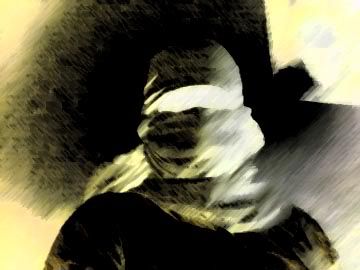Al-Bukhari, Volume 2, Book 23, Number 480:
Narrated Abu Huraira:A Bedouin came to the Prophet and said, "Tell me of such a deed as will make me enter Paradise, if I do it." ... (to be continued)
The bedouins of Arabia were known for their simplistic and often rough or frank approach to issues and questions, as was a reflection of their rough and humble lifestyles. However, this question that he asked, a bedouin from the desert, was almost the exact same question another man asked the Prophet SAW also. This man was known as A'lamul Halal wal Haraam, the most knowledgeable about what was Halal and what was Haram, Muadh Ibn Jabal, the scholar of Islam, HE asks the Prophet SAW this exact same question on one occasion:
"O Messenger of Allah, tell me of a deed which will take me into Paradise and will keep me away from the Hell-fire."
And what did the Prophet SAW say about his question? He said that you have asked me about a GREAT MATTER. Sa'altu 'an 'adheem!
What does this show us, that the bedouin and the simple man and the scholar of Islam Muadh Ibn Jabal are asking the SAME QUESTION, that this is what is important! A lot of times we miss the point of our existence and what we are working for. Bust out a question and answer session and you'll get every question in the world but something like this! And this is an issue and a question for everybody! Not just the laypeople and not just the scholars but everyone!
So from this tradition of the Prophet SAW we can immediately learn one thing, and that is, 'What do we ask?' What is the value and the point of what we are asking, and is it benefiting us in the long run or is it just trivia and facts that we can throw down on people when we want to sound smart?
Another point to be made from this tradition is a question that stems from the first, and that is, 'Who do we ask from?' Many times people will have questions, but they just don't know who to go to? Allah SWT mentions in the Qur'an that we should ask the people of knowledge when we do not know. So we go to the scholars. That is who we ask. But then who is a scholar. And so it comes down to who is an Aalim...is it the person sitting in an interview on Fox News or Oprah, or the person with the beard who wears a thobe and kufi?
One time a person asked this same question to Sheikh Saleh Ibn Abdul Aziz, and he responded in two words. He said: Al-Aalimu NAAQIL. He said the person you should go to, the true scholar is the NAAQIL. Now what is that? The root of this word naqala means to transmit something, and even in urdu, it is said that if a person is doing naql of somebody else, they are copying them. What the Sheikh was giving this person was a criteria to judge who was a scholar and who wasn't, and this was not based on their reputation, what school they went to or their appearance, but it was in the way they actually answered the question. Were they doing Naql of somebody else, somebody before them? Were they doing Naql of the chain of transmission of all knowledge, namely that : Allah SWT says in His Book this, the Prophet SAW has said this, his companions they said this, the Tabi'een said this and those after them said this, the great Imams said this and the scholars of the past said this, the scholars of today say this, and finally, my understanding from this...is this.

1 comment:
Was I wrong to think this was a daily/sorta daily thing? :look:.
hah 'tis cool...next year, then :P.
Post a Comment